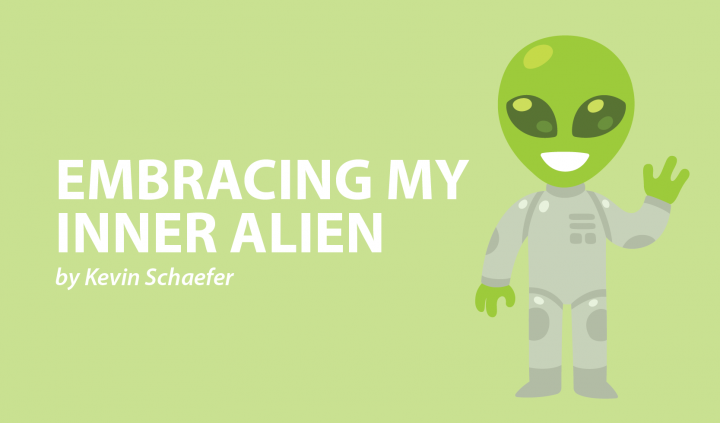5 Tips for Maintaining a Healthy Relationship with Your Caregiver
Written by |

Randy and Kevin. (Photo by Cindy Schaefer)
We often talk about the qualities of an ideal caregiver and what one should look for, but we rarely talk about what we as patients can do for our caregivers. The patient-caregiver relationship works both ways, and it’s important to keep in mind that our caregivers have needs, too.
Whether the primary caregiver is a parent, friend, or someone hired through an agency, the following are a few things I feel are important to consider, based on my experiences with personal care assistants.
1. Let your caregiver know in advance when your schedule changes.
This is something I’m guilty of neglecting all too often. When I first started working with paid caregivers, I was so focused on my own schedule and ensuring that my needs were met that I neglected the fact that my caregivers had their own schedules to keep. Even before I had paid assistants, I would often spring a last-minute change on my parents when it came to getting a ride somewhere. Please try to avoid this.
Keep in mind that caregivers likely have other jobs, school, family lives, etc. If something comes up in your schedule and you need to make changes, let them know as soon as possible.
Ask questions and share your knowledge of SMA in our forums.
2. Establish barriers.
If caregivers are hired through an agency, you’ll probably hear that it’s not a good idea to become close friends with them. Agencies often say this because they don’t want their employees to become so comfortable with their clients that they neglect their responsibilities.
I strongly disagree with this mentality. My caregiver of four years is one of my closest friends, and I’ve maintained friendships with my previous CNAs as well. Given that these people spend so much time with me and work with me in a very personal capacity, I only hire people who I can see myself being friends with.
That said, it is still important to keep in mind that caregiving is a job, and my CNAs need to be there to meet my needs. If you feel that your caregiver has become too comfortable, and slacks off as a result, be upfront with them about the issue. Establishing a line of honest communication early on will help you solve problems before they get out of hand.
3. Make your needs clear to them.
If you’re hiring someone through an agency or online, this person likely will have had clients with a wide range of abilities, needs, and levels of independence. You want to make it clear to your caregiver what your specific needs are and what you can and cannot do.
For instance, when a caregiver lifts me for transfers, I have to be handled very delicately due to my sensitive muscles. I’m basically cradled like a baby when my caregiver transfers me out of my wheelchair because he has to hold me gently. Whether transferring, using medical equipment, or shifting positions in bed, make sure your caregiver knows how to ensure your safety and comfort. The only way for them to be able to help you properly is for you to communicate with them.
4. It’s OK to be frustrated with each other.
You and your caregiver are going to fight and get on each other’s nerves. Especially if your caregiver is a family member, significant other, or friend — this is just inevitable. But when you have a fight with your caregiver or are simply frustrated with each other, make sure that this type of tension doesn’t last. Don’t keep feelings bottled up, either. It’s best to put everything out in the open when there’s a problem and work through it together.
5. Thank your caregiver.
A truly good caregiver is hard to find, and if you’ve found that person, it’s important to let them know how much you appreciate them. Give them a night off here and there. Take them out to dinner. Give them a gift card to their favorite restaurant or store. Little signs of appreciation go a long way, and it’s important to let that person know how grateful you are for them.
Want to discuss this topic with me? Check out the SMA News Today forums.
***
Note: SMA News Today is strictly a news and information website about the disease. It does not provide medical advice, diagnosis, or treatment. This content is not intended to be a substitute for professional medical advice, diagnosis, or treatment. Always seek the advice of your physician or other qualified health provider with any questions you may have regarding a medical condition. Never disregard professional medical advice or delay in seeking it because of something you have read on this website. The opinions expressed in this column are not those of SMA News Today, or its parent company, Bionews Services, and are intended to spark discussion about issues pertaining to spinal muscular atrophy.





Leave a comment
Fill in the required fields to post. Your email address will not be published.